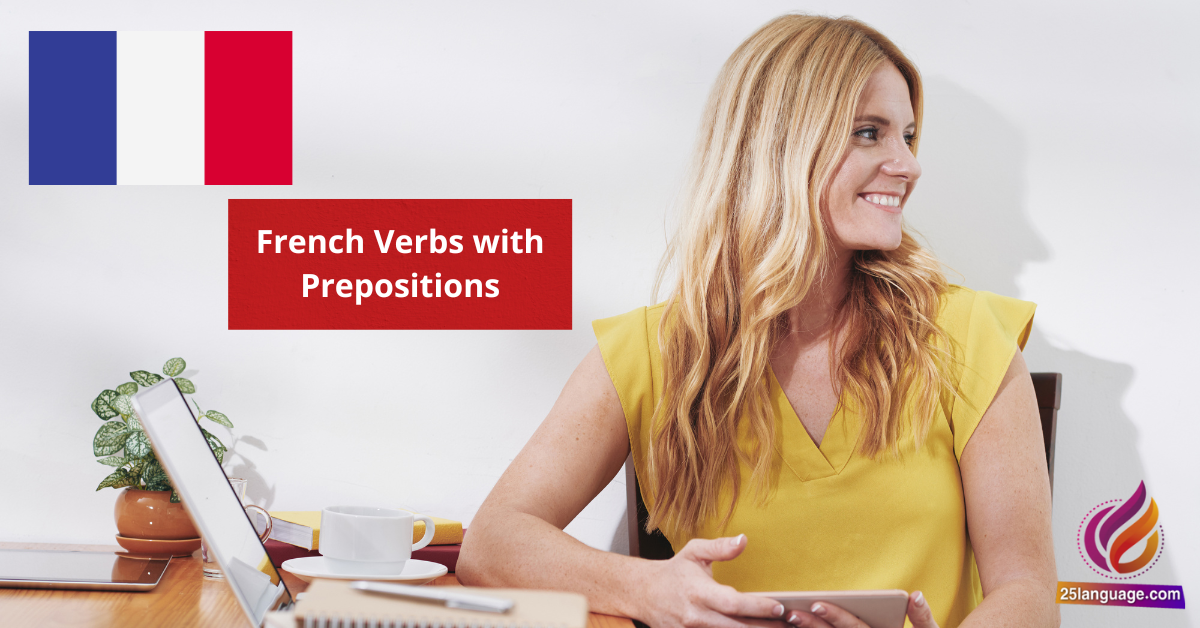Introduction to French Verbs with Prepositions

Unlock the beauty of the French language by diving into the world of verbs with prepositions! Understanding how these dynamic verbs interact with specific prepositions is key to expressing ideas clearly and accurately. Whether you’re discussing your daily routine or sharing your passions, mastering this aspect of French will enhance your communication skills. Get ready to elevate your French fluency and make your conversations more vibrant and engaging!
Exploring the Nuances of French Verbs and Their Prepositions
Understanding the relationship between French verbs and their associated prepositions is vital for constructing meaningful sentences. In French, certain verbs require specific prepositions to convey the intended meaning, which often differs from their English equivalents. These combinations can be categorized based on whether the verb naturally takes an object, and whether the object is direct or indirect. Such as:
- Penser à (to think about) – Je pense à mes amis. (I think about my friends.)
- Parler de (to talk about) – Elle parle de son projet. (She talks about her project.)
- Obéir à (to obey) – Il obéit à ses parents. (He obeys his parents.)
Some verbs, however, can change meaning based on the preposition they are paired with. A notable example is jouer,which means “to play.” used with à,it refers to playing a game or sport,while with de,it indicates playing a musical instrument. Consider the following:
| french Example | Rule | English Translation |
|---|---|---|
| Je joue au football. | Jouer à: indicates playing a game or sport. | I play soccer. |
| Elle joue de la guitare. | Jouer de: indicates playing a musical instrument. | She plays the guitar. |
Mastering Essential french verbs: A Guide to Prepositional usage
In French, many verbs are closely linked with specific prepositions that change the meaning or context of the verb. Understanding these pairings is essential for constructing grammatically correct sentences. Some common verbs with their prepositional usages include:
- parler à (to speak to) – example: je parle à mon ami. (I speak to my friend.)
- penser à (to think about) – Example: Elle pense à ses vacances. (She thinks about her vacation.)
- jouer à (to play at) – Example: Nous jouons à des jeux vidéo. (We play video games.)
Additionally, some verbs require different prepositions when used with certain nouns or in different contexts, which can be notably challenging for learners. Below is a table summarizing some essential verbs along with their associated prepositions:
| French Verb | Preposition | English Translation |
|---|---|---|
| répondre | à | to answer |
| s’intéresser | à | to be interested in |
| réfléchir | à | to think about |
| dépendre | de | to depend on |
| parler | de | to talk about |
The Dynamics of French Verbs with Prepositions: Explained and Practiced
The use of verbs with prepositions in French can often be intricate, as the preposition can alter the meaning and context of the verb significantly. Certain French verbs are almost always paired with specific prepositions, influencing the structure of that verb’s usage in a sentence. Here are a few notable examples:
- penser à (to think of) – example: Je pense à mes amis. (I think of my friends.)
- parler de (to talk about) – Example: nous parlons de nos projets. (We talk about our plans.)
- avoir besoin de (to need) – Example: Elle a besoin de temps. (She needs time.)
It’s essential to pay attention to which prepositions accompany certain verbs, as this can change how you construct sentences. Additional examples of common verbs and their prepositional partners include:
| French Phrase | Preposition | English Translation |
|---|---|---|
| écouter | à | to listen to |
| penser | à | to think of |
| répondre | à | to respond to |
| jouer | à (games),de (instruments) | to play (to a game or an instrument) |
Practical Strategies for Understanding French Verbs and Their Prepositional Combinations
Understanding French verbs often involves grasping their prepositional combinations,which can vary significantly from english. One key aspect to remember is that certain verbs require specific prepositions to convey complete meaning, and these do not always translate directly. For example, the verb penser (to think) combines with the preposition à (to) when referring to an idea or a person:
- Je pense à toi. (I think of you.)
- Il pense à son avenir. (He thinks about his future.)
Similarly, the verb parler (to speak) uses the preposition de (about) when discussing a topic:
- Je parle de mes vacances. (I talk about my vacation.)
- Nous parlons de l’école. (We are talking about school.)
| French Verb | Preposition | English Translation |
|---|---|---|
| penser | à | to think of |
| parler | de | to talk about |
| répondre | à | to respond to |
| attendre | de | to wait for |
In Retrospect
Conclusion de la leçon : ‘Introduction aux verbes français avec prépositions’
Félicitations,chers apprenants ! Aujourd’hui,nous avons fait un excellent pas vers la maîtrise de la langue française en explorant les verbes accompagnés de prépositions. Vous avez découvert l’importance de ces structures pour exprimer des idées claires et nuancées en français.
nous avons vu comment certains verbes sont souvent suivis de prépositions spécifiques, transformant ainsi leur sens. Par exemple, “penser à” se distingue de “penser de”, et cette nuance fait toute la différence dans une conversation. de plus, les verbes comme “s’intéresser à”, “avoir besoin de” et “parler de” enrichissent notre expression et nous permettent de communiquer avec plus de précision.
Il est essentiel de continuer à pratiquer ces verbes et leurs prépositions dans vos échanges quotidiens. N’hésitez pas à créer des phrases, à écouter des dialogues ou à écrire de petits textes pour renforcer votre compréhension. Plus vous vous exercerez,plus vous vous familiariserez avec ces constructions,et votre confiance en parlant français grandira.
Rappelez-vous, chaque étape que vous franchissez vous rapproche un peu plus de la fluidité. Soyez fiers de votre progrès et restez curieux ! La langue française regorge de ressources et d’opportunités d’apprentissage. Alors, plongez-vous dans cette aventure linguistique, appliquez vos nouvelles connaissances, et n’oubliez pas : la pratique rend parfait. À bientôt pour notre prochaine leçon, et bon courage dans vos efforts en français !





























